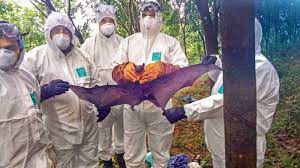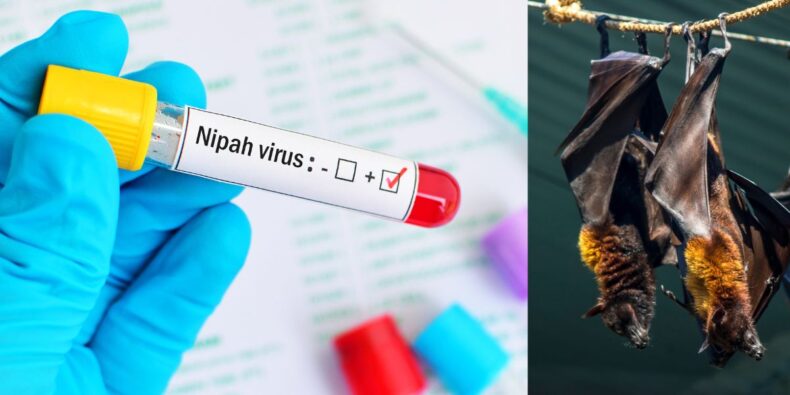As of September 13, 2024, there have been four cases of Nipah virus reported in Kerala, India. Two of the cases have resulted in death. The index patient was a 26-year-old man from Kozhikode district who died on August 30, 2024..A nine-year-old child and a 24-year-old relative of the index patient are among the patients in the ongoing case.
As the two “unnatural deaths” in the state were determined to be caused by the Nipah virus by Union Health Minister Mansukh Mandaviya, the Central government on Tuesday dispatched a team of medical specialists to Kerala.
August 30 saw the first death, and September 11 saw the second. The first individual who passed away on August 30 was a 44-year-old male, and the second was a 40-year-old man.
What is Nipah Virus?
The Nipah virus first came into Kerala in 2018. The first case was reported on May 19, 2018, in a 23-year-old man from Kozhikode district. The outbreak eventually spread to other parts of the state, and a total of 23 cases were confirmed, with 17 deaths. The outbreak was declared over on June 10, 2018.
The Nipah virus is a zoonotic virus that is spread from animals to humans. The natural host of the virus is fruit bats, and the virus can also be found in pigs. The virus can spread to humans through contact with the saliva, urine, or other bodily fluids of an infected animal, or through contact with contaminated food or water.
The symptoms of Nipah virus infection can include fever, headache, cough, sore throat, difficulty breathing. The case fatality rate for Nipah virus infection is high, There is no specific treatment for Nipah virus infection, but supportive care can help to improve the chances of survival.
Restrictions due to Nipah Virus
43 wards of the seven village panchayats designated as containment zones won’t allow entry or exit till further notice.Village offices and local self-government organisations would be permitted to operate with a lean workforce, according to the collector.
The Kozhikode district of Kerala, where two individuals died as a result of the Nipah virus, has seven village panchayats that the Kerala government named containment zones on Wednesday. Restrictions and other actions were also declared by the government to stop the sickness from spreading.
The Kerala government has imposed a number of restrictions in order to contain the Nipah virus outbreak. These restrictions include entry and exit restrictions in containment zones, closure of schools, colleges, and other educational institutions.
Stopping of public transportation in containment zones, prohibition of selling raw date palm sap, spraying of disinfectants in containment zones, and monitoring of people who have been in contact with infected individuals are some of the response taken by the Kerala government .
The government has also asked people to take precautions to prevent the spread of the virus, such as avoiding contact with sick animals, especially fruit bats, not drinking raw date palm sap or other beverages that may be contaminated with bat droppings, practicing good hygiene, and wearing a mask
The outbreak is currently centred around the Keralan city of Kozhikode. Seven localities – Atanchery, Maruthonkara, Tiruvallur, Kuttiyadi, Kayakkodi, Villyapalli, and Kavilumpara — have been designated containment zones, and travel restrictions have been put in place.
Residents in these areas have been urged to follow preventive precautions like donning masks, using hand sanitizer, and avoiding social contact. Governmetn has also sent a team of health experts due to the outbreak.
The Nipah virus is a serious threat to public health, but the Kerala government’s response has been swift and effective. The measures that have been taken are helping to contain the outbreak and protect the people of Kerala.

(Image source : The Mint)













